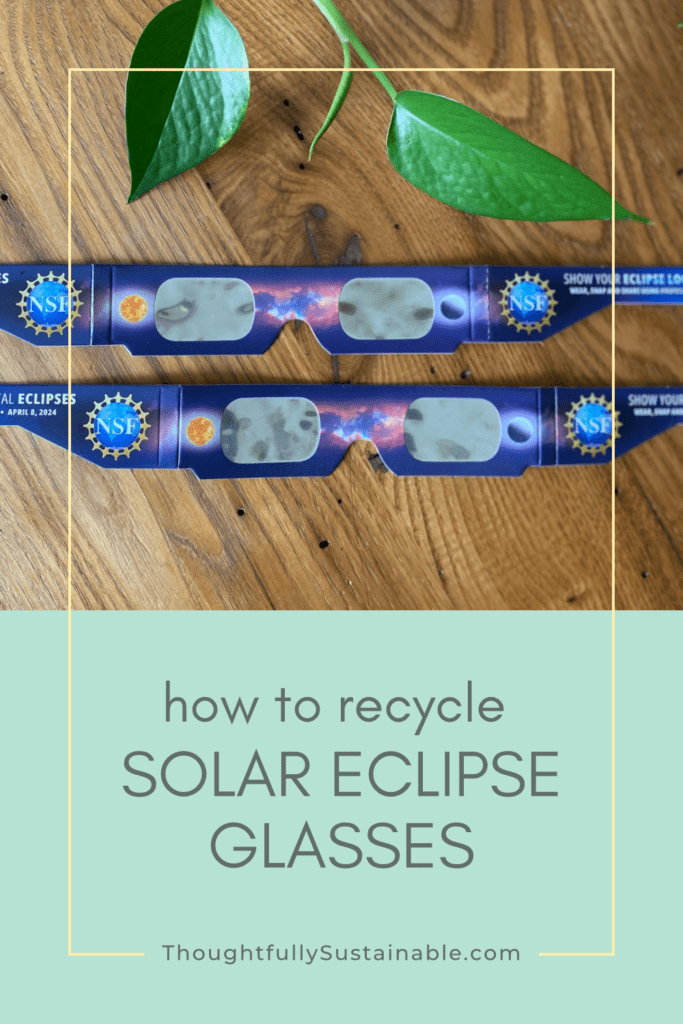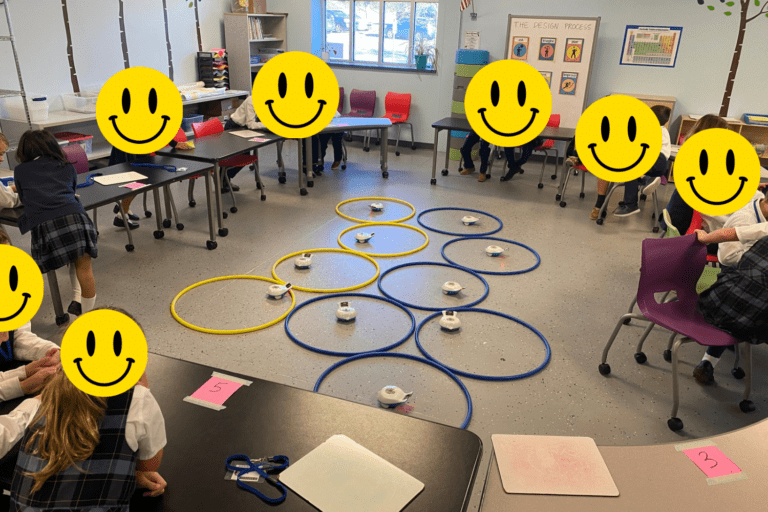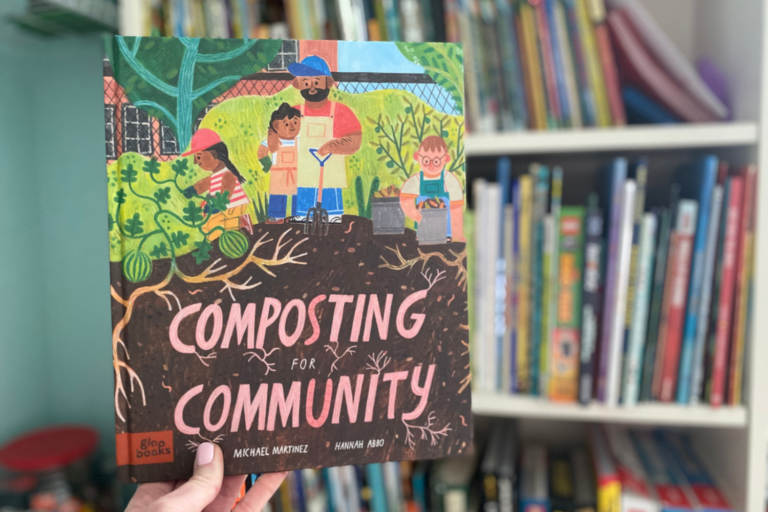How to Recycle Undamaged Solar Eclipse Glasses in the U.S.
Are you looking for a way to recycle your solar eclipse glasses in the United States? By participating in donation programs, you can play a significant role in providing used, undamaged solar eclipse glasses to people worldwide, contributing to a global effort in sustainability.
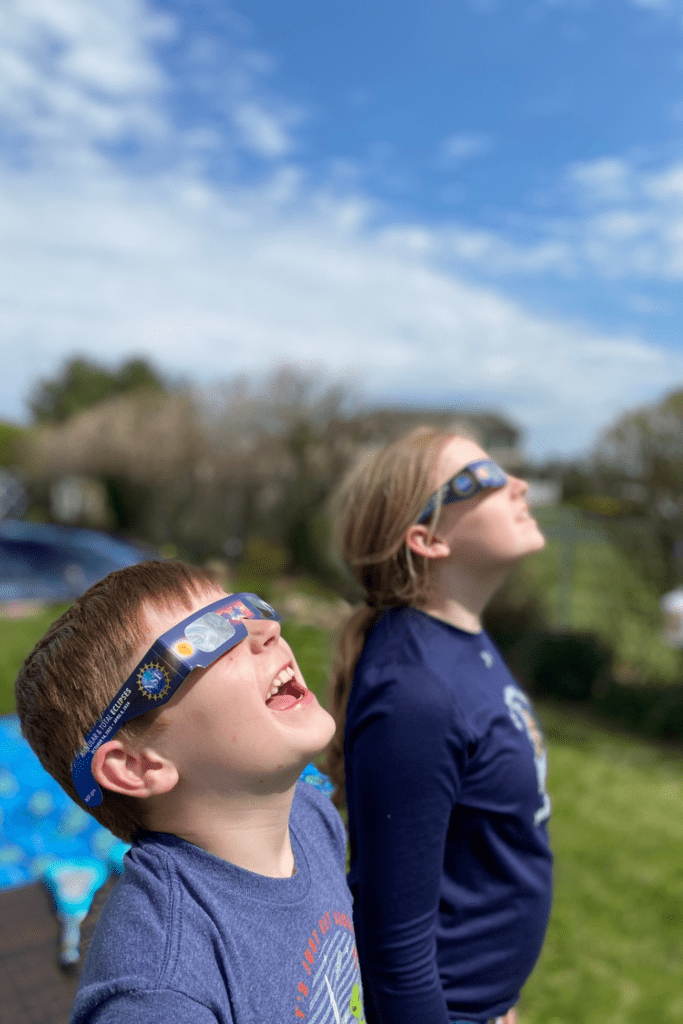
My family, like many others, picked up solar eclipse glasses from our local library in preparation for viewing the solar eclipse. These glasses are not just a tool for viewing but a crucial safety measure designed to protect your eyes from ultraviolet (UV) radiation and infrared radiation from the sun. We will use them for an hour or two as we anxiously await and watch the moon’s passage in front of the sun. Once the eclipse ends, we will avoid tossing the glasses in the trash or shoving them in a forgotten drawer. Instead, we will donate our undamaged glasses so they can be reused again!
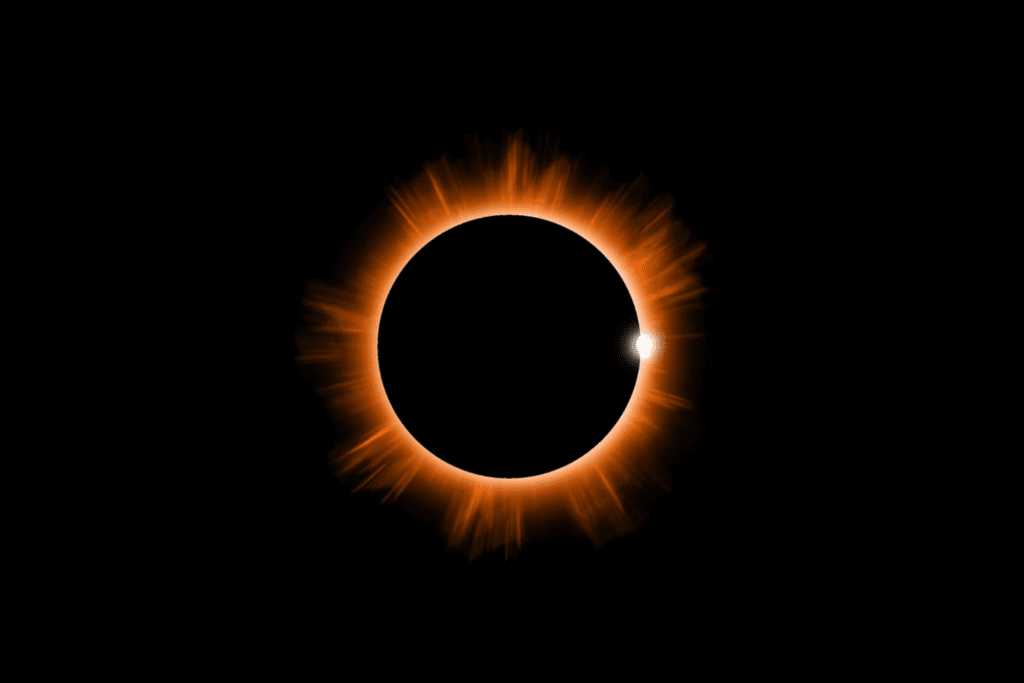
This post contains an affiliate link. If you choose to click, thank you in advance for supporting my free educational content.
What Are Solar Eclipse Glasses Made Of?
Solar eclipse glasses are typically made from a special type of black polymer material that is designed to block out the harmful rays of the sun. This material is often referred to as solar film or solar viewing film. It is coated with a thin layer of aluminum, chromium, or silver to block ultraviolet, visible, and infrared radiation. The film is then mounted in a cardboard or paper frame to create the glasses.
To ensure that solar eclipse glasses will protect your eyes, you should look for specific certifications and markings on the glasses. Here are some guidelines to follow:
- ISO Certification: Look for glasses that are certified to meet the ISO 12312-2 international safety standard for filters for direct observation of the sun. This certification indicates that the glasses have been independently tested and meet the necessary safety requirements.
- Manufacturer Information: Check for manufacturer information on the glasses, including the name and address of the manufacturer. Reputable manufacturers will provide this information so you can verify the authenticity of the glasses.
- Date of Manufacture: Make sure the glasses are not older than three years. Over time, the protective film on the glasses can degrade, reducing their effectiveness.
- Condition of the Glasses: Inspect the glasses for any signs of damage, such as scratches, holes, or warping. Damaged glasses may not provide adequate protection and should not be used.
- Usage Instructions: The glasses should come with usage instructions that explain how to safely use them to view the eclipse. Follow these instructions carefully to protect your eyes.
By checking for these certifications and following these guidelines, you can ensure that the solar eclipse glasses you use will provide adequate protection for your eyes. Here is an example of solar eclipse glasses that meet these certifications.
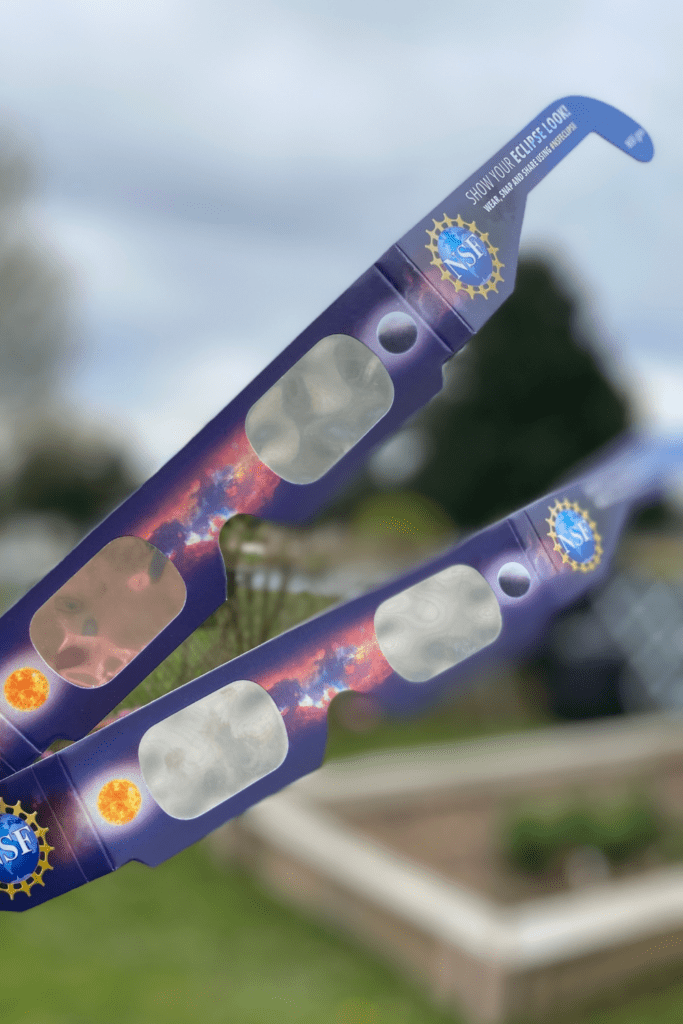
How to Recycle Your Undamaged Solar Eclipse Glasses
Here are a few ways that you can recycle your undamaged solar eclipse glasses:
Astronomers Without Borders
The mission of Astronomers Without Borders is to build and cultivate community through astronomy. Astronomers Without Borders has been sending solar glasses for annular and total solar eclipse since 2008. From Africa, Asia, North and South America, their members, partners and national coordinators help bring glasses to people who may not otherwise have a safe way to view the eclipse directly. Travelers from the United States graciously volunteer to bring them in their luggage and hand them out to local educators and organizers of public viewing events.
Astronomers WIthout Borders has created two ways you can donate your gently used solar eclipse glasses.
- Sign up to be a solar eclipse glasses collection and vetting site. If you are hosting a solar eclipse watch party or are affiliated with a school, library, church, or other community organization, sign up to be a collection site for glasses. You can find more information about how to participate here.
- Look for Astronomers Without Borders collection sites in your area. Below is a list of current solar eclipse collection sites in the United States that have partnered with Astronomers Without Borders. The eyewear company, Warby Parker, has over 240 retail stores that are collecting solar eclipse glasses!
| State | Organization Name | Address |
| National | Warby Parker | Find a Store Near You |
| Indiana | Vessel Refillery FW | 10376 Leo Road, Suite G, Fort Wayne, IN 46825 |
| Ohio | Keep Toledo/Lucas County Beautiful | Attn: Adam Cassi, 1011 Matzinger Rd., Toledo, OH 43612 |
| Ohio | Twinsburg Public Library | 10050 Ravenna Rd., Twinsburg, OH 44087 |
| Vermont | Montshire Museum of Science | 1 Montshire Rd., Norwich, VT 05055 |
| Vermont | Chittenden Solid Waste District | 19 Gregory Drive, Suite 204, South Burlington, VT 05403 |
Eclipse Glasses USA
Eclipse Glasses USA is hosting a solar eclipse glasses give back program where they are collecting gently used, undamaged eclipse glasses to send to schools in Latin America so school aged children can safely view the annual eclipse in October 2024. Used glasses must be shipped to Eclipse Glasses USA by August 1st, 2024 in order to ensure their timely arrival to schools in Latin America.
Here is Eclipse Glasses USA shipping address:
Eclipse Glasses USA, LLC, PO Box 50571, Provo, UT 84605
Click here for more information on Eclipse Glasses USA donation program.
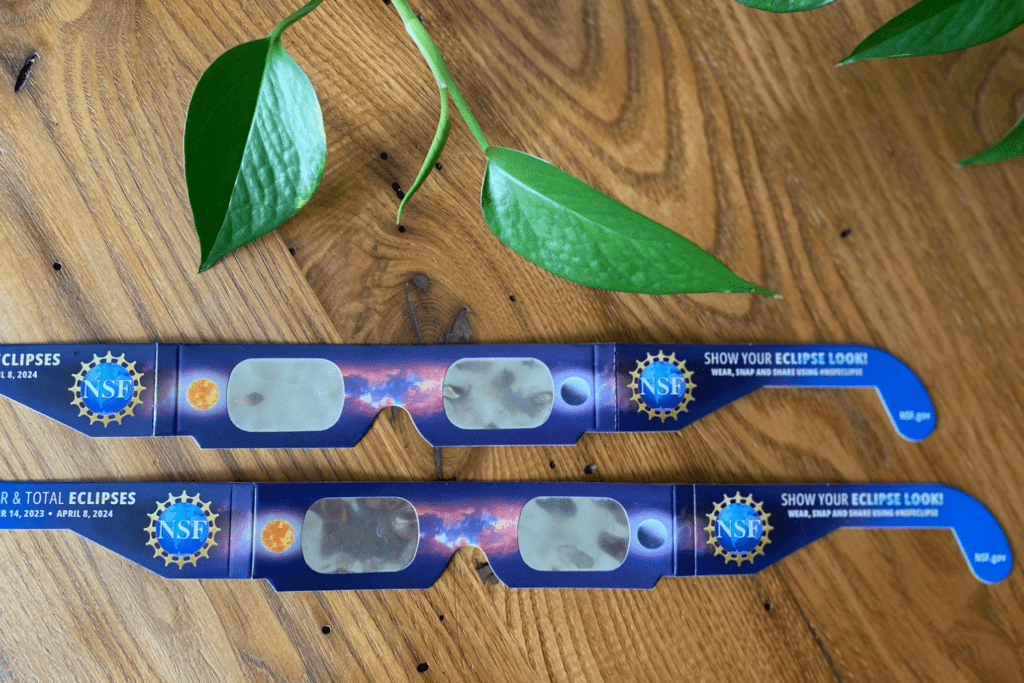
What Solar Eclipse Glasses Are Not Acceptable for Recycling
Safety is imperative when viewing a solar eclipse, as eye injuries can occur if improper observations are made. For this reason, solar eclipse glasses must be undamaged in order to be accepted for donation. The following damages to solar eclipse glasses will not be accepted:
- No scratches on the glasses
- No punctures on the glasses
- No tears on the glasses
Will you be recycling your solar eclipse glasses? Tell me how in the comments below!
